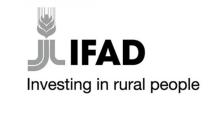Resource information
A narrative on rural youth in Africa has continued to evolve in policy circles around the world. Much of it is driven by population statistics that point to an imminent youth bulge in Africa and concerns about a poor economic outlook (stagnation) for African productivity and growth. Fears of massive unemployment, social unrest and undesirable migration due to limited economic growth drive the bulk of the discourse. This is juxtaposed with the promise of a youth dividend for the continent, which is highlighted by some quarters of the policy debate.
This paper reviews the narrative on rural youth and economic opportunities in Africa, using a set of policy documents from various African countries and regional and international organizations. It then looks at the evidence to question the validity of the narrative. Where evidence does not exist, the paper uses available data from a variety of sources to begin painting a descriptive picture on rural youth in Africa. Some misconceptions in the narrative are identified. These include the notions that rural youth are not engaging in agriculture, that they are better educated (skilled) and that they are more likely to use and benefit from internet and communications technologies (ICT). In addition, the notion that youth entrepreneurship offers great promise for rural youth in Africa is brought into question.
What this paper shows is that rural youth in Africa are in fact engaging in agriculture and the agrifood system in general. Moreover, while rural transformation is indeed taking place, with some rural youth moving into other sectors of the economy, large numbers of African rural youth are still predicted to enter the agrifood system in the coming decades. This calls for more investment in African agriculture to enhance the prospects of rural youth in Africa. While the evidence does show that African youth are indeed more educated than their parents and previous generations, several constraints on the level and quality of learning in rural Africa are raised. In particular, young African women in rural areas face a multitude of barriers to human capital formation, including early pregnancy and parenthood as well as early marriage. These constrain their prospects for continued learning and skills development and in turn limit their economic outlook. New evidence on non-cognitive skills development and learning outside conventional school settings provides important insights on some of the promising interventions that could enhance human capital formation among rural youth, especially for young women in Africa.
The paper also identifies major constraints on IT access, especially the prohibitive cost of mobile phone services. Low access to capital and skills continue to constrain rural youth entrepreneurship and are likely to persist if relevant investments are not made and policy action is not taken. Drawing on the broad literature review and data analysis, the paper concludes with recommendations on policy and investments for rural youth in Africa. The paper also highlights the need for rigorous research on identified knowledge gaps



